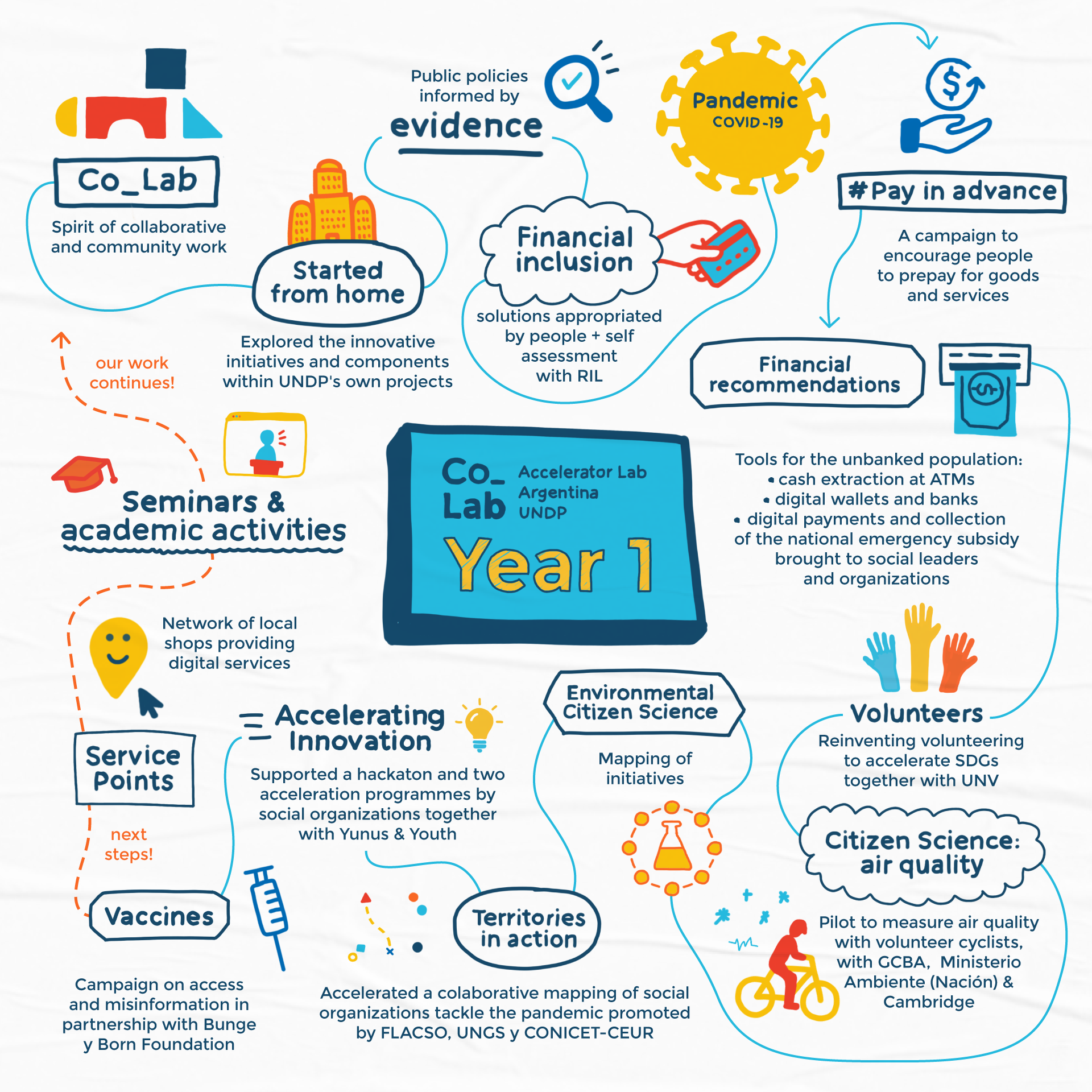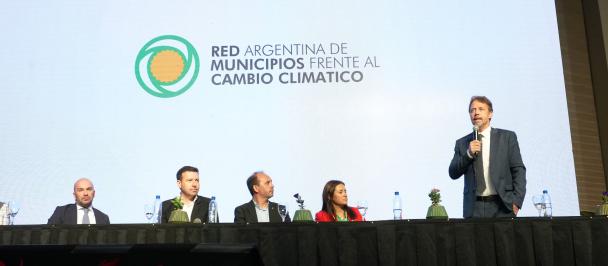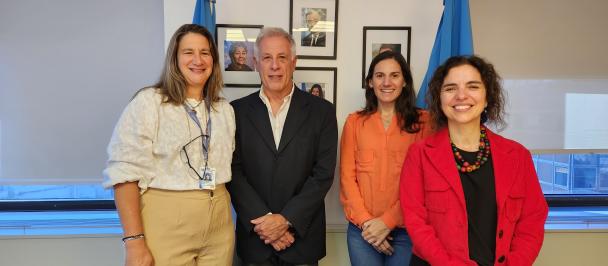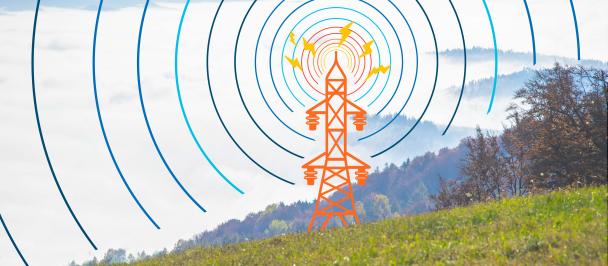Almost a year ago, three members of the Argentina SDG AccLab were joining UNDP to promote short learning cycles that could contribute to design policies.... these are the some of their projects during our first year. Illustration: CO_LAB Argentina.
By Ma. Verónica Moreno -Head of Solutions Mapping AccLabUNDPArg @mveronicamoreno
Almost a year ago, the three members of the Argentina AccLab were joining UNDP to promote short learning cycles that could contribute to design policies, based on what works.
Home is where we started from: we explored the innovative initiatives and components of UNDP's own projects. We recognized that the country office had already been implementing projects with a complex approach, characterized by territorial proximity and participatory diagnoses. On that basis, we had to carve out our own path.
We knew that, faithful to our experimental approach, we wanted to work on public policies informed by evidence. Therefore, we invited multiple social actors, from different sectors, to co-create a diagnosis on that matter.
Meanwhile we defined that our first learning cycle would be on financial inclusion due to Argentina´s critical situation. How were we going to do it? By teaming up. The three area leaders agreed to participate in each of the stages of the process to appropriate its meaning. We were going to explore, map and experiment together. We hardly knew each other, but we were sure that this process would be the bases of our group.
We conducted interviews with key informants, we relied on a several allies that allowed us to move from our office to low-income neighborhoods, we carried out a field research where we mapped solutions and discovered interesting findings. We learned that the most valued ones are appropriated by people, regardless of whether they have designed them or not. Among users, the lines between beneficiaries and promoters is blurred. Most are crossed by trust and proximity. When there is social organization, processes accelerate.
When I think of these elements, I realize that they are the same ones on which we wanted to found our AccLab, which we called Co_Lab to emphasize our spirit of collaborative and community work.
Just a few days before the lockdown was established, we conducted our first experiment to understand peer group influence on people's financial decisions. The next day, we went out to celebrate our achievement: we had done our first learning cycle. At that time, we did not know that this was going to be the last time we would see each other in person ... up to the day I am writing this blog.
With the outbreak of the pandemic, the AccLab Global Network reacted quickly and generated spaces to share our learnings in real time. On the other hand, the physical distancing measures —sustained in our country— raised multiple questions about how our work was going to continue.
In line with the financial inclusion topic, we developed three communication campaigns to promote tools that could make people's lives easier. Therefore, we focused on encouraging people to prepay for goods and services that they regularly purchased to support those unable to go out to work. We also disseminate useful tools for the unbanked population: a system that allows the extraction of cash in ATMs, and digital wallets and banks since they favor digital payments (a highly recommended measure) and collection, in the case of banks, of the national emergency subsidy.
As a result, FONCAP, a major financial inclusion player in Argentina, along with the National Council for the Coordination of Social Policies, proposed us to join the COVID-19 Protocol for social organizations to disseminate financial recommendations. We collaborated in designing the materials which were distributed among hundreds of social leaders or, rather, volunteers —practically all of them women—who work in these organizations. Through this action we reached 251 social organizations.
The pandemic has showed the importance of working on financial inclusion. We contributed to incorporate this issue at UNDP Argentina. In fact, we are designing a project with the Gender Area, based on our bottom up methodology. With this same approach, we also contribute in other spaces. For example, we joined the co-creation of a self-assessment for financial inclusion for local governments in alliance with RIL, the Local Innovation Network, and numerous experts.
The magnitude of the social and sanitary emergency reinforced our need to understand the grassroots efforts. We decided to accelerate the collaborative map “Territories in action: social organizations tackle the pandemic” —promoted by Latin American Faculty of Social Sciences Argentina, the Instituto del Conurbano of the Universidad Nacional General Sarmiento and CEUR-CONICET (National Scientific and Technical Research Council) to make visible the conformation of the Argentine associative universe and the relevance of their actions. Today, there are more than 500 social organizations mapped!
From this collaboration, we also realized that we could recruit young people —potential change agents in their communities— to carry out a remote research, aimed at mapping solutions on financial inclusion and early recovery. This action belongs to a United Nations Volunteers project whose purpose is to develop a blueprint. It also includes an acceleration phase to design digital and inclusive financial solutions, promoted with volunteers from Shaping Horizons, an initiative of the University of Cambridge, Ashoka, UNDP Mexico and the Universidad Nacional de San Martín.
More recently, COVID-19 also highlighted the relevance of vaccines. Every day there is news in the media on this subject; asking multiple questions. When will the vaccine be available? Who will have first access? What will its effects be? Will it be effective? However, information pollution becomes a problem. Therefore, we will investigate on how access barriers coexist with misinformation in vaccines. In alliance with Bunge y Born Foundation, we will carry out a qualitative study and an extensive survey experiment.
On the other hand, the mobility restriction measures in the strictest phase of the lockdown in the City of Buenos Aires were presented to us as an opportunity to promote a project that would measure air quality with volunteer cyclists who circulated with low-cost sensors. This citizen science project was developed with the UNDP Environmental Cluster in alliance with the National Ministry of the Environment, the Government of the City of Buenos Aires and Open-Seneca from the University of Cambridge.
Upon that project, we realized that our next learning cycle will be on citizen science, focused on the environment. Today, we are exploring this topic and have already mapped numerous projects. In this mapping exercise we intend to include non-traditional actors, who also seek to build knowledge and influence public discussions. How do communities address problems that are not necessarily studied by the scientific sector or governments? What is the relationship between people's knowledge of problems and their commitment to possible solutions?
Anyway, these are the some of our projects during our first year. Of course, we also had several failures along the way ... but that will be the subject of another blog.
How do we envision next year? Full of challenges. In principle, we are organizing a series of extension activities, from webinars to discuss challenges and opportunities emerging from our lines of action to university courses to build capabilities, the first one will be with students from Universidad de San Andrés. In addition, we are planning an experiment on service points, based on territorial proximity and supporting an acceleration program for social entrepreneurs together with Yunus & Youth.
We didn't do it alone, we did it Co_Lab (orating).

 Locations
Locations


